Calling For Change


Introduction
In Aotearoa forty-two billion dollars is spent each year on goods, services and works from third party suppliers to build infrastructure and provide public services. Spending this money responsibly and locally is the greatest untapped government opportunity for positive economic, cultural, social and environmental impacts in Aotearoa.
Extending the Government Procurement Rules to all Public Sector spending will have a positive impact on the wellbeing of our workers, on our regions, on our Maori and Pasifika communities, on our carbon emissions, levels of waste and the conservation of our land and species. At the same time, it will incentivise collaboration between small New Zealand businesses; encourage Kiwis to use the ingenuity that we are known for to create local solutions to local problems; and harness the skills of the highly talented workforce returning to Aotearoa in 2020.
Positive Social and Environmental Impact
Extending the Government Procurement Rules to more government entities will achieve greater positive social, cultural and environmental impacts. The Priority Outcomes set out in the Procurement Rules Government Charter include improving conditions for workers, reducing waste, supporting the transition to a net-zero emissions economy, ensuring our environment is protected and preserved and engaging with our regional, Maori and Pasifika businesses and our social enterprises.1 When these Outcomes are taken into account, businesses that have positive social, environmental and cultural impacts are more likely to win tenders. In turn, these businesses will grow more quickly and their impact will be greater.
1 Government Procurement Rules 2019 (4th edition) accessed 11 November 2020 https://www.procurement.govt.nz/assets/procurement-property/documents/government-procurement-rules.pdf
There is an assumption that social enterprises or more ethical companies may come at a prohibitive price. However, these assumptions are often unfounded. In many cases (including in the non-alcoholic beverage industry) the price offered by social enterprises will be on par with traditional procurement. In addition, when businesses are granted the opportunity to scale, that comes with winning Government tenders, prices will drop further. This is before including the value of positive, social, cultural and environmental outcomes. In addition, the quality is often higher. In 2020 businesses are largely responsible for the poor state of our environment and the imbalance of human wealth. At a time when eight people have the same amount of money as half the world; and humans’ are on trend to use the equivalent of two planets’ worth of resources by 2030; it is critical that businesses are incentivised to act responsibly and ethically.
Positive Economic Impact
Extending the Government Procurement Rules will give New Zealand companies a better opportunity to win tenders for government spending. This will put more New Zealand tax payer dollars back into the New Zealand economy. Spending money with New Zealand companies has a multiplier effect as New Zealand businesses, particularly small New Zealand businesses, recycle a larger percentage of their money per dollar back into the local economy.
The multiplier effect continues if the reduction of Government spending elsewhere is considered. For example, the Government has allocated three billion dollars to spend over three years on the Provincial Growth Fund (PGF). The goal of the Fund is to “ensure that people living all over New Zealand can reach their full potential by helping build a regional economy that is sustainable, inclusive and productive.” The Procurement Rules encourage support of regional businesses. Likewise the Climate Change Response (Zero Carbon) Amendment Act (the Zero Carbon Bill) sets ambitious carbon reduction targets that businesses will be required to comply with. Extending the Procurement Rules to include all of the Public Sector will enable the Government to reach targets set out in the PGF and Zero Carbon Bill as well as many other environmental and social targets more quickly, therefore reducing public spending in other areas.
Encouraging collaboration
Extending the Procurement Rules may curtail some flexibility and options for the public sector. However, it also provides an incentive for small New Zealand companies, which make up 97% of total businesses nationally, to work together to craft solutions where there is a need for them.
Extending the Procurement Rules will encourage collaboration and collective efforts on a local level where previously international companies have dominated. For example, in the non-alcoholic beverage industry, which is traditionally saturated by Coca-Cola and Pepsi-Co, we have worked with three other small and sustainable New Zealand companies, Six Barrel Soda, Batchwell Kombucha and For the Better Good to create a full fridge option of non-alcoholic beverages. We have formed a new distribution company, Nudes which is owned by all of the companies it distributes for. While we are all competitors, we all have much to gain from sharing resources, our channels to market, freight, sales reps and fridges.
Extending the government procurement rules would encourage New Zealand companies to work together to create industry-led collaborations in a similar way. Once formulated in New Zealand, these products and services could be taken to the world stage in industries and channels that have previously been inhibitive for a country of our size.
Encouraging innovation
New Zealanders are known for our number 8 fencing wire ingenuity. We have a can-do attitude and ability to think laterally to solve a problem. When given an opportunity to create a solution, New Zealand’s small businesses are known for their ability to act quickly. Extending the government procurement rules to include all of the Public Sector will harness this ability in three ways.
Firstly, it will encourage companies to think laterally to create goods, services and products that preserve the environment, reduce waste, carbon emissions and pollution. Secondly, it will mean that procurement managers are working more closely with companies in their own backyard. This could foster innovation as businesses tailor services and products to specific public sector needs and may also allow for a less disruptive supply chain.
Thirdly, it will provide more opportunities for the talented cohort of New Zealanders returning home. As Covid-19 curbs work internationally, New Zealand has an unprecedented opportunity to harness the skillsets of some of our brightest minds coming home. Extending the Procurement Rules, which focus on innovation solutions, will create those opportunities.
Conclusion
Extending the Government Procurement Rules is a win-win for Aotearoa. It will improve the wellbeing of our workers, help our regions and Maori and Pasifika communities prosper, reduce our carbon emissions and levels of waste and help to conserve our land and species. These areas are already points of focus for the New Zealand Government. Spending procurement dollars in areas that New Zealanders have voiced as priority areas is a win-win. In addition, the emphasis on innovation in the Government Procurement Rules will incentivise collaboration between small New Zealand businesses and provide opportunities for the highly-skilled cohort returning to Aotearoa.
Florence Van Dyke





